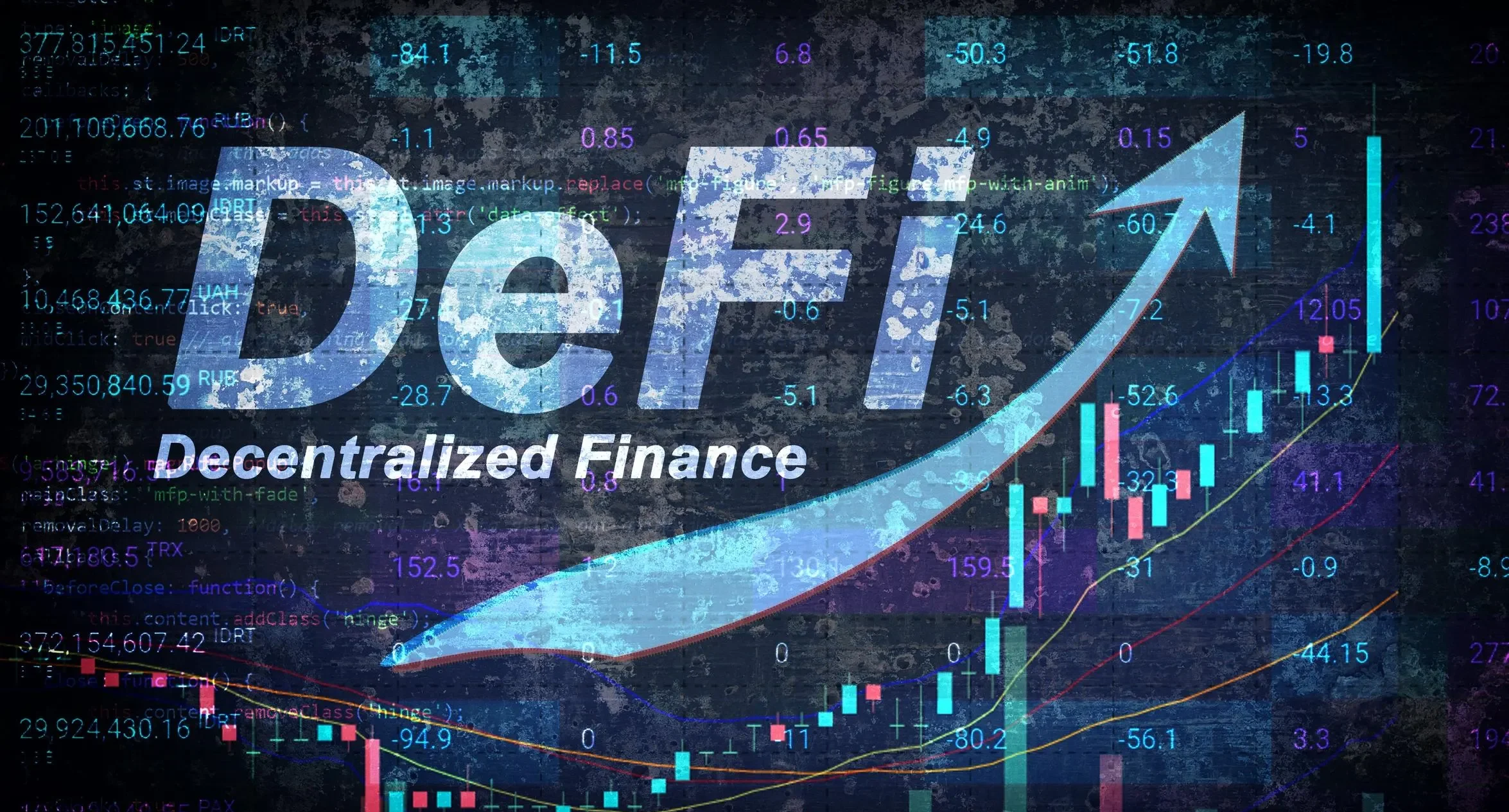DeFi Index Funds in UAE, Risks Investment Strategies

The United Arab Emirates has positioned itself as a progressive cryptocurrency hub, with clear regulations from VARA (Dubai) and ADGM (Abu Dhabi), and driven by zero capital gains tax. As decentralized finance (DeFi) continues to evolve, UAE traders are increasingly interested in DeFi index funds as a way to gain diversified exposure to the burgeoning decentralized ecosystem. Top DeFi Insurance, However, the question of safety remains paramount for prudent investors navigating this emerging asset class.
What Are DeFi Index Funds?
DeFi index funds represent a basket of decentralized finance tokens and protocols, providing investors with diversified exposure to the DeFi ecosystem without the need to research and purchase individual tokens. These funds typically include governance tokens from major protocols like Uniswap (UNI), Aave (AAVE), Compound (COMP), and Synthetix (SNX), among others.
Unlike traditional index funds that track established market indices, DeFi index funds focus on:
- Decentralized exchanges (DEXs) and their native tokens
- Lending and borrowing protocols governance tokens
- Yield farming and liquidity mining platforms
- Synthetic asset protocols and derivatives platforms
- Cross-chain bridge and infrastructure tokens
Popular DeFi Index Fund Platforms
- DeFi Pulse Index (DPI): The DeFi Pulse Index, created by Index Cooperative, tracks the performance of major DeFi tokens weighted by market capitalization and adjusted for circulating supply.
- Bankless DeFi Innovation Index (GMI): This index focuses on emerging DeFi protocols and governance tokens that show strong fundamentals and innovation potential.
- MetaVerse Index (MVI): While not purely DeFi, MVI includes DeFi protocols that facilitate metaverse and gaming applications.
Regulatory Landscape for UAE Traders
Current UAE Cryptocurrency Regulations
The UAE has established a comprehensive regulatory framework that significantly impacts DeFi trading:
Dubai’s Virtual Assets Regulatory Authority (VARA)
Businesses must register with Dubai’s Virtual Assets Regulatory Authority (VARA) and comply with anti-money laundering (AML) and know-your-customer (KYC) regulations. This regulatory oversight extends to DeFi platforms operating within Dubai’s jurisdiction.
Abu Dhabi Global Market (ADGM)
ADGM provides an alternative regulatory framework for cryptocurrency activities, offering clearer guidelines for institutional investors and sophisticated traders.
Tax Implications
Dubai imposes no personal income or capital gains tax on cryptocurrency for individuals in 2025, making it an attractive jurisdiction for DeFi investments. However, for businesses engaged in crypto-related activities, a 9% corporate tax is applicable on profits exceeding AED 375,000 (approximately $100,000).
Regulatory Compliance Challenges
KYC/AML Requirements
Traditional DeFi protocols operate without centralized intermediaries, creating challenges for compliance with the UAE’s stringent KYC and AML requirements. UAE traders must ensure they can demonstrate the source of funds and transaction history.
Licensed Platform Requirements
VARA updated its regulations on the marketing of virtual assets, limiting marketing and promotions, including educational content to licensed entities. This affects how DeFi index funds can be promoted and accessed by UAE residents.
Risk Assessment for UAE Traders

Technical and Smart Contract Risks
Code Vulnerabilities
DeFi protocols rely on smart contracts that may contain bugs or vulnerabilities. The lack of centralized oversight has made crypto, including decentralized finance, a prime target for hackers and scammers. In 2024 alone, people lost nearly US$1.5 billion due to security exploits and fraud.
Common Smart Contract Risks:
- Reentrancy attacks: Exploiting contract execution order
- Flash loan exploits: Manipulating prices through temporary large loans
- Oracle manipulation: Feeding incorrect price data to protocols
- Governance attacks: Malicious proposals affecting protocol operations
Protocol Risk Categories
High-Risk Protocols:
- Newly launched projects with limited track records
- Protocols with concentrated governance token distribution
- Unaudited smart contracts or recent major updates
- Cross-chain bridges and wrapped token protocols
Medium-Risk Protocols:
- Established protocols with proven track records but ongoing development
- Audited contracts with moderate total value locked (TVL)
- Governance systems with reasonable distribution
Lower-Risk Protocols:
- Battle-tested protocols with multi-year operational history
- Multiple security audits and bug bounty programs
- Large, diversified TVL and strong community governance
- Established protocols like Uniswap, Aave, and Compound
Safety Measures for UAE DeFi Investors
Due Diligence Framework
Protocol Research Checklist
Technical Assessment:
- Audit history: Multiple audits from reputable firms (ConsenSys Diligence, Trail of Bits, OpenZeppelin)
- Code transparency: Open-source smart contracts with active developer community
- Bug bounty programs: Ongoing security incentives for vulnerability discovery
- TVL stability: Consistent or growing total value locked over time
Governance Evaluation:
- Token distribution: Avoid protocols with excessive insider or founder allocations
- Voting mechanisms: Robust governance processes with reasonable proposal thresholds
- Community engagement: Active discussion and transparent decision-making
- Upgrade procedures: Clear processes for protocol improvements
Index Fund Specific Considerations
Methodology Transparency:
- Rebalancing frequency: How often the index composition changes
- Inclusion criteria: Clear standards for token selection
- Weighting methodology: Market cap, equal weight, or fundamental-based
- Exclusion criteria: Protocols removed due to risk factors
Operational Security:
- Custodial arrangements: How underlying tokens are secured
- Multi-signature requirements: Protection against single points of failure
- Insurance coverage: Protection against smart contract failures
- Emergency procedures: Response plans for protocol exploits
Risk Management Strategies
Portfolio Allocation Guidelines
Conservative Approach (5-10% of crypto portfolio):
- Focus on established protocols with proven track records
- Prioritize index funds with rigorous screening processes
- Maintain significant exposure to Bitcoin and Ethereum as portfolio anchors
Moderate Approach (10-20% of crypto portfolio):
- Balanced exposure to established and emerging DeFi protocols
- Diversification across different DeFi categories (DEXs, lending, derivatives)
- Regular rebalancing based on risk-adjusted performance
Aggressive Approach (20%+ of crypto portfolio):
- Higher allocation to emerging and innovative protocols
- Active management and yield farming strategies
- Acceptance of higher volatility for potential outsized returns
Diversification Strategies
Sector Diversification:
- Decentralized exchanges: Uniswap, SushiSwap, Curve
- Lending protocols: Aave, Compound, MakerDAO
- Derivatives: Synthetix, dYdX, Perpetual Protocol
- Infrastructure: Chainlink, The Graph, Polygon
Geographic Diversification:
- Ethereum-based protocols: Established ecosystem with high liquidity
- Binance Smart Chain: Lower fees but potentially higher risks
- Polygon and Layer 2: Scaling solutions with growing adoption
- Alternative blockchains: Solana, Avalanche, Fantom protocols
Operational Best Practices
Wallet Security
Hardware Wallet Usage:
- Ledger or Trezor: Secure offline storage for DeFi interactions
- Multi-signature setups: Additional protection for larger holdings
- Regular security updates: Firmware and software maintenance
Hot Wallet Management:
- Separate trading wallets: Isolation of DeFi activities from main holdings
- Transaction limits: Predetermined maximum exposure per protocol
- Regular monitoring: Daily review of positions and protocol changes
Transaction Safety
Pre-Transaction Verification:
- Contract address verification: Ensure interaction with legitimate protocols
- Transaction simulation: Use tools like Tenderly to preview outcomes
- Gas optimization: Appropriate fee settings for transaction priority
- Slippage protection: Reasonable slippage tolerance settings
Comparison with Traditional Investment Options
Traditional Index Funds in UAE
The UAE offers various traditional investment options that provide relevant comparison points:
Established Index Fund Options
- Emirates NBD Asset Management: Sharia-compliant index funds
- HSBC UAE: International equity index funds
- Franklin Templeton: Regional and global index funds
Cost Comparison Analysis
Traditional Fund Costs
- Management fees: 0.5-2.0% annually
- Transaction costs: 0.1-0.5% per trade
- Administrative fees: Custody and reporting charges
- Tax efficiency: Favorable treatment for UAE residents
DeFi Index Fund Costs
- Protocol fees: 0.25-1.0% annually for index funds
- Gas fees: Variable network transaction costs ($5-100 per transaction)
- Slippage costs: 0.1-2.0% depending on trade size
- Opportunity costs: Active management requirements
Recommended Approach for UAE Traders
Entry Strategy Framework
1 Phase: Education and Preparation (1-3 months)
- Comprehensive research: Understand DeFi fundamentals and risks
- Regulatory compliance: Ensure adherence to UAE requirements
- Security setup: Implement proper wallet and security measures
- Small test transactions: Gain practical experience with minimal risk
2 Phase: Conservative Allocation (3-6 months)
- Start with 2-5% of total crypto portfolio in established DeFi index funds
- Focus on blue-chip protocols with strong track records
- Monitor performance and risk metrics closely
- Gradually increase allocation based on comfort and market conditions
3 Phase: Optimization and Scaling (6+ months)
- Increase allocation to 5-15% based on risk tolerance
- Diversify across strategies and protocol categories
- Implement active management for portion of holdings
- Regular rebalancing and risk assessment
Summary
DeFi index funds present both compelling opportunities and significant risks for UAE traders. While the UAE’s progressive regulatory environment and zero capital gains tax create favorable conditions, the inherent risks of DeFi protocols demand careful consideration and robust risk management.
For UAE traders willing to accept higher risks in pursuit of potentially superior returns, DeFi index funds can serve as a valuable portfolio component. DeFi and Web3 Growth, However, they should represent only a small portion of overall investment allocation, with careful attention to risk management and regulatory compliance.
The combination of UAE’s favorable regulatory environment and the maturation of DeFi infrastructure suggests that these investment vehicles will become increasingly viable for sophisticated investors. However, the current landscape still requires significant due diligence, technical knowledge, and risk management expertise.
